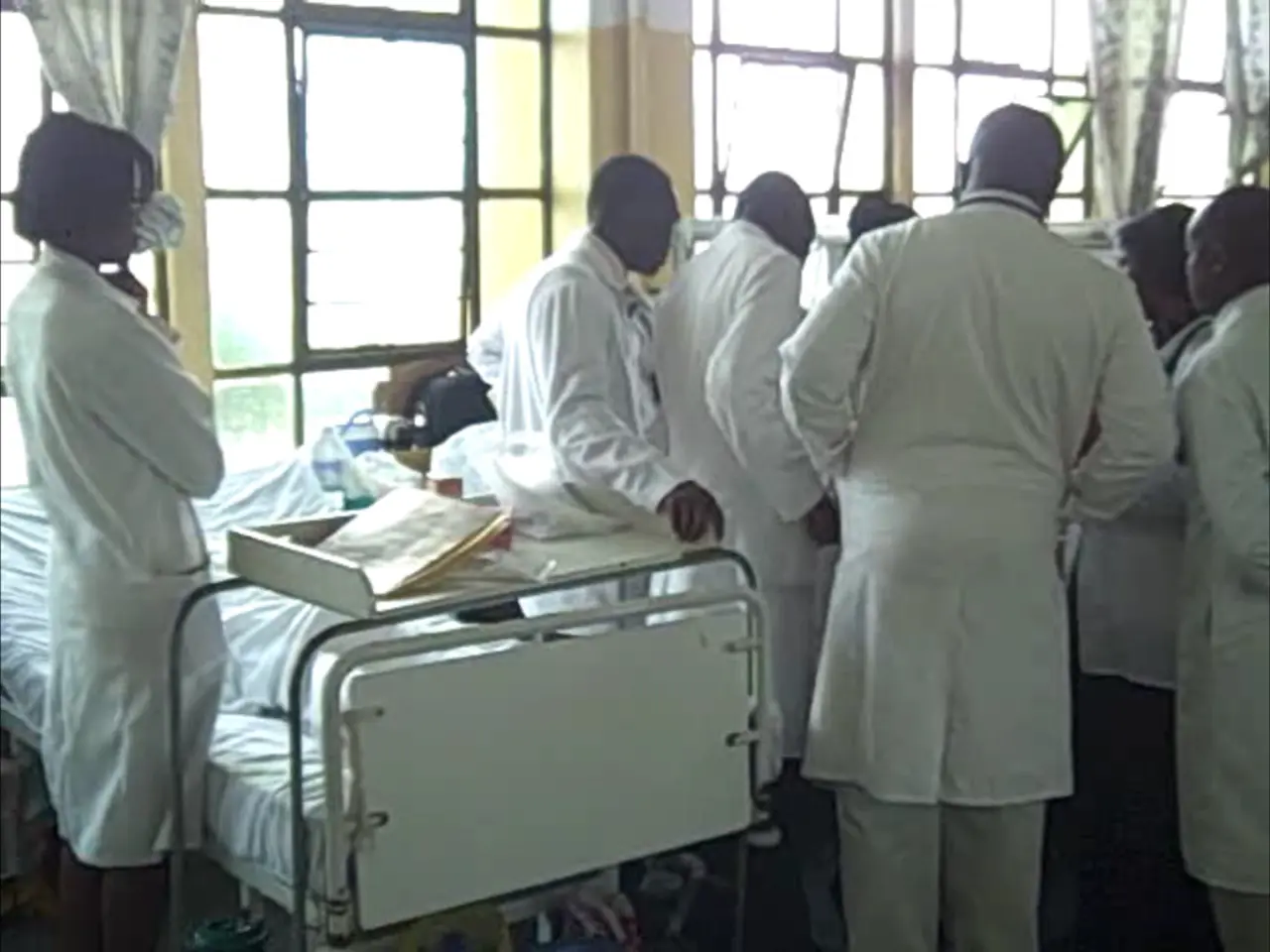Doctors in private practice within Brandenburg are experiencing a shortage. - Healthcare Professionals in Short Supply in Brandenburg
Brandenburg, a sparsely populated federal state in Germany, is experiencing unique healthcare provider shortages that are particularly prominent in complex surgical specialties and specialised outpatient services. The rural nature of the region, combined with a limited number of specialised centres, is exacerbating these shortages.
### Specialty and Regional Situation
Surgical specialties in Brandenburg, such as complex oesophageal surgery, are centralised in only a few specialised centres. This centralisation leads to an increased workload for these centres, potential long waiting times, and patient selection difficulties. The redistribution of surgical services may complicate patient coordination due to poor networking between specialised and regional providers.
Recruitment for healthcare trials indicates that stroke units in Brandenburg are active but face logistical challenges, especially related to patient access, which have been exacerbated by the COVID-19 pandemic. The stroke unit in Brandenburg recruited 319 participants compared with 365 in Berlin, highlighting that care provision and clinical trial infrastructure are less dense than in the capital. Lung cancer inpatient recruitment numbers are even lower, implying limited specialised outpatient lung cancer clinics in Brandenburg.
### Impact on Underserved Areas
The reduction of regional hospitals' complex care capacity means patients must travel to specialised centres, which could be distant, increasing barriers to access, especially in this rural state. Health professionals voice concerns about critical infrastructure sustainability, less networking and cooperation between providers at specialised centres and peripheral regional hospitals, and the potential for overload and inequity in care delivery.
### Regional Healthcare Initiatives
To address these challenges, the Berlin-Brandenburg Healthcare Cluster is working on fostering cross-sector and interdisciplinary cooperation through cluster management initiatives. These initiatives aim at integrated care, including digital networking to improve communication between specialists across hospitals and outpatient settings, potentially addressing some coordination challenges in Brandenburg's healthcare landscape.
The cluster also works on innovations in prevention, treatment, rehabilitation, and logistics to strengthen the healthcare system at a regional level, which could mitigate shortages and service gaps over time.
Despite these challenges, it's worth noting that more doctors are working full-time in Brandenburg, and the per capita supply of doctors is at a record high, according to data from the German Medical Association. However, there are regions in Brandenburg with a 140% oversupply of certain specialist groups, such as ear, nose, and throat specialists in Dahme-Spreewald, Elbe-Elster, and Märkisch-Oderland.
In conclusion, Brandenburg faces unique healthcare provider shortages that are particularly prominent in complex surgical specialties and specialised outpatient services. Centralisation of complex care into limited specialised centres risks overloading these facilities and creating access difficulties for underserved regions. Efforts by the Berlin-Brandenburg cluster to enhance integrated care and networking may offer strategic solutions to these challenges, improving coordination, innovation, and accessibility in the medium to long term.
[1] Source: Brandenburg Medical Association [2] Source: Berlin-Brandenburg Healthcare Cluster [3] Source: German Cancer Aid
- To alleviate the challenges faced in Brandenburg's healthcare system, the establishment and implementation of comprehensive community and employment policies could attract more healthcare professionals to work in the region, particularly in underserved areas such as complex surgical specialties and specialized outpatient services.
- In light of the growing number of patients suffering from chronic diseases and medical-conditions like stroke and lung cancer, it is crucial for policies to promote ongoing science and research in health-and-wellness, ensuring the development of innovative treatment methods and strategies that cater to these specific health needs within Brandenburg's healthcare environment.




